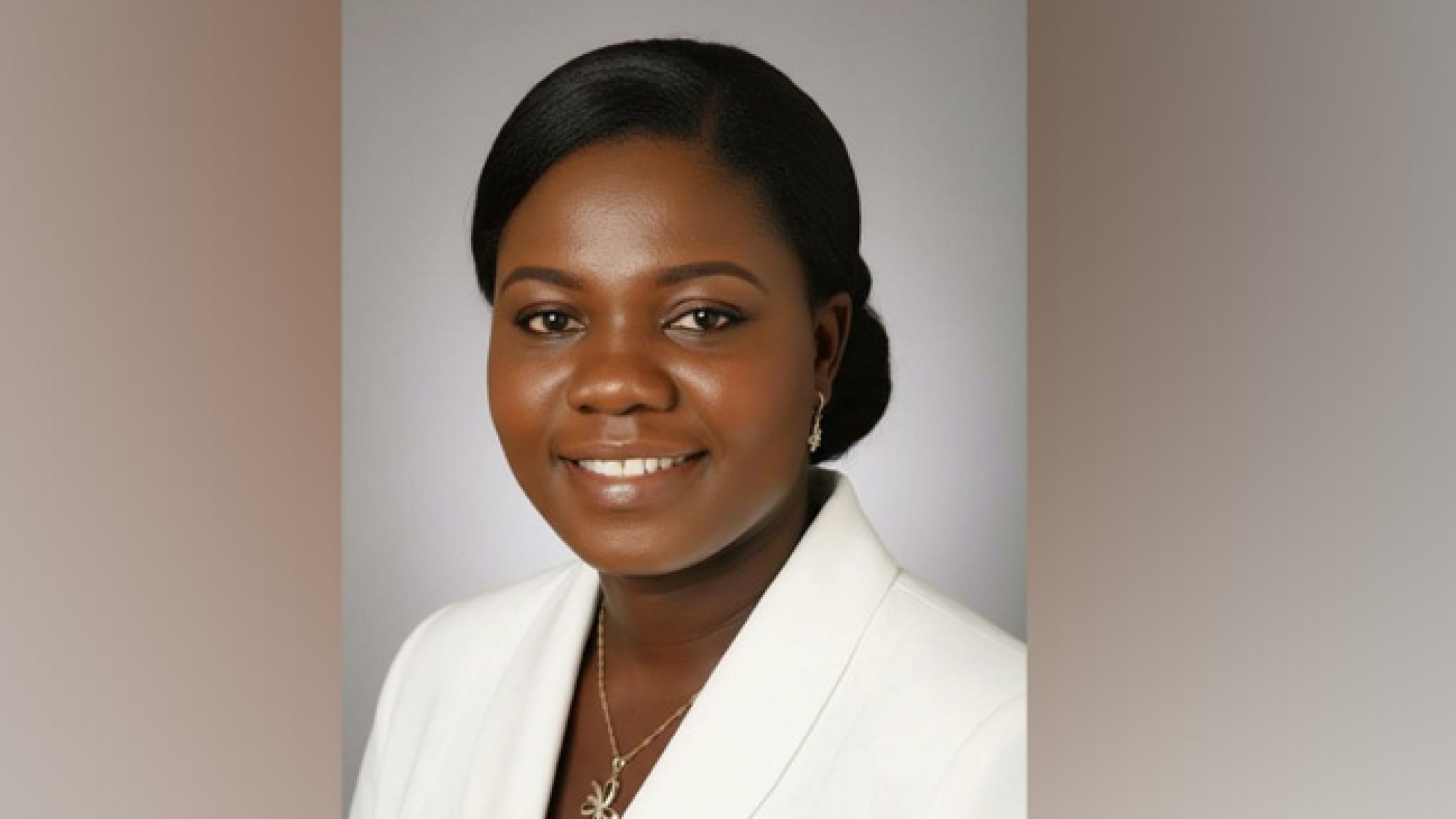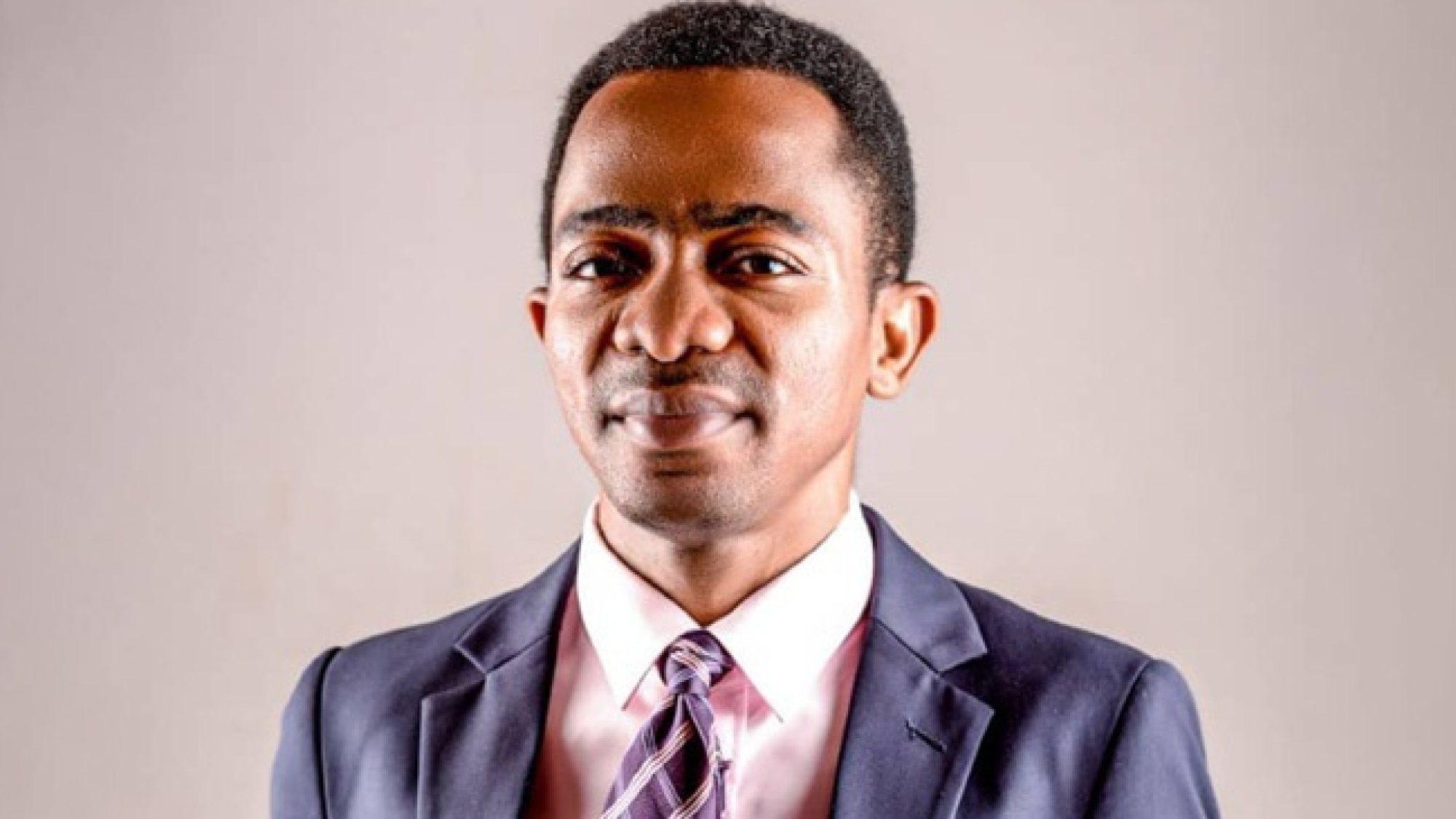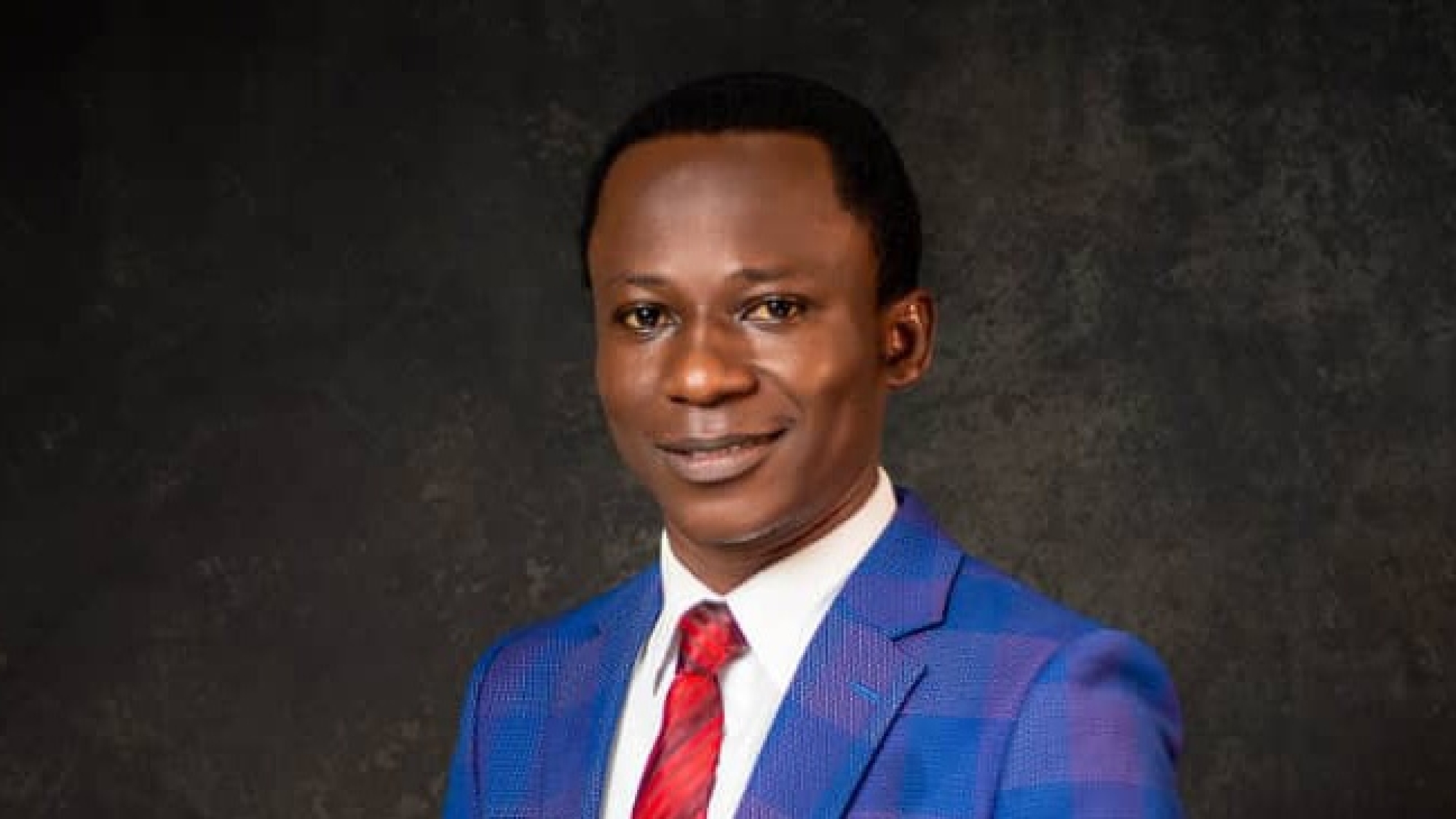The Kingdom of God is like a real estate developer who discovers a large piece of land in a remote part of the country, but with a topography suitable for his project. On this land, a few settlers live whose hope and dream is to find an investor who can help them realize their full potential by investing in their community. Unfortunately, little about them attracts investors, as they are often viewed as a burden to society. However, some individuals visit the community regularly and support them with foodstuffs and other essentials. The community leaders do their best to offer assistance. Still, the residents are mostly disgruntled, disappointed, bitter, and angry, spending their days counting down to their eventual liberation and freedom. Despite this, the community is well-endowed and rich in one of the scarce resources and inputs the developer needs.
Considering the high cost and time some of his subsidiaries spend to acquire certain inputs for their daily operations, the Estate Developer called an emergency meeting with all his top management after visiting the community. During the meeting, he discussed the prospects and profitability of the organization when investing in the community. After his presentation, some argued that the amount or initial financial investment required for that proposal wouldn’t make business sense because it cannot be recouped quickly. One manager also suggested that the CEO focus on economically viable communities instead, while visiting them occasionally to support them with essential supplies and foodstuffs.
Another manager stood up and passionately argued that the community residents are ungrateful and do not appreciate what is done for them. The CEO then heard some giggling from the back of the room, implying that the community leaders were even more controversial. He continued by saying that the attitude of some is the reason many are hesitant to invest in the community. When the noise subsided, the company lawyer cited clauses in the constitution to support his point that it is the government’s responsibility, not the company’s, to develop that community. Therefore, it is not appropriate for their highly regarded and prestigious company to use its resources for such projects. Finally, a financial expert in the organization compiled a long list of employees who lack vehicles, suitable housing, and adequate pay to support their families. He suggested that addressing these issues internally within the organization would be better, and they should consider his proposal in the future. After his remarks, he moved to adjourn the meeting if there was nothing more to discuss. The CEO looked troubled and concerned in his chair. Just as another was about to second the motion, a top manager, who had watched the CEO’s earlier presentation with keen interest, raised his hand to make a final comment if permitted.
He caught the business mogul’s attention and was given a chance to speak. He urged the house to reconsider their position by supporting the CEO’s vision. He argued that their organization’s rarely available and valuable daily operational inputs were plentiful and accessible in that community. Somehow, this last speaker managed to earn the support of some key individuals in the room, but most of the attendees argued he could go ahead and take the risk with his subsidiary. The excited estate developer suddenly stood up, looked at the last speaker, and said, “I will help and support you on that schedule, so lead your subsidiary to invest in that community.” Participants in the meeting were amazed by the warm and kind words from their CEO to the last speaker.
After a year, the entire community experienced significant changes, with a large portion of the company’s earnings now coming from investments within that community. His operating costs decreased, and each small investment in the land generated substantial profits, astonishing the other subsidiaries. Today, the Real Estate Developer has fully dedicated himself to that subsidiary and is using it to influence the world and nations. An official from the media house covering the meeting approached the only son of the estate developer for an explanation of the parable. He explained that the renowned real estate developer is God, and the land he acquired represents the correctional facilities managed by the Ghana Prisons Service. The community leaders are the officials of the Ghana Prisons Service, and the residents are those in custody. The son of the real estate developer is Jesus Christ, with the top management being the heads of churches worldwide. The manager who delivered the last presentation on behalf of his subsidiary, which caught the estate developer’s attention, is Apostle Dr. Eric Nyamekye, Chairman of The Church of Pentecost. Those who supported his motion were members of the Executive Council, the entire church’s ministers, and its members. The media outlet covering the proceedings was The Pent Media Centre. The meaning of the parable is as discussed.
- THE ARGUMENT OF COST AND ITS IMPACT ON THE CHURCH’S FINANCES: The cost of all infrastructural projects is high, affecting the budgets of any organization or institution. However, cost is meaningful only when compared to the value of the item purchased or obtained. Therefore, it is appropriate to weigh the value added to society and the nation as a whole against the cost of constructing the three camp prisons. Scriptures provide numerous examples demonstrating God’s love for humanity through Jesus Christ. In our time, God has also expressed this powerfully through the vision to build a reformation center for the country in partnership with the Ghana Prisons Service. God used Hosea’s marriage to illustrate His covenant relationship and love for wayward Israel, His children. When God directed him to marry Gomer, the prostitute, his family and loved ones likely saw it as a total loss and a waste of a godly man’s worth and pride (Hosea 1:2). Yet, His creator chose that method to demonstrate the extent of His faithfulness to Israel. Was Hosea not going to feel the name-calling and mockery around him then? He was! Did that also involve a socio-economic cost for him? It did, but God’s word and the generations living today testify to the value, understanding, and relief Hosea’s story continues to inspire.
Many will find it interesting that of the three completed camp prisons handed over, most of the funds came from individuals God raised to support the vision. Additionally, careful management of funds and the approach used to acquire the facilities ensured value for money. Projects of a similar nature purchased through regular contractual methods in the construction industry would cost three to four times more than what was spent on these facilities.
After just over two years since their commissioning, the Ejura and Nsawam camp prisons alone have saved and baptized 737 souls, some with the Holy Spirit, and their lives have been transformed. Additionally, 357 individuals have been trained in various skills, including ICT, carpentry, tailoring, weaving, and leatherwork.
- THE ARGUMENT FOR PRIORITIZING THE ORGANIZATION’S INTERNAL CHALLENGES BEFORE UNDERTAKING PROJECTS: In the real world, there is no perfect moment to show kindness or generosity. There will always be some need within a household, organization, or church setting that requires attention at any given time. Therefore, waiting for an ideal moment to do good to others is unrealistic. Unfortunately, the populist argument for careful management of scarce resources often appeals to people’s emotions. However, the true motives behind such statements are not always clear and can sometimes be driven by less noble intentions. Jesus faced a similar argument during His lifetime, presented by some of His disciples, led by Judas Iscariot. It’s not uncommon to find a few “Judases” even among the core members or vision bearers. Thankfully, in any God-given project, they are and will always be a minority—outnumbered, for example, by a ratio of one against eleven. Led by Judas Iscariot, some of the apostles strongly opposed Mary’s act of pouring expensive perfume on Jesus as a sign of honor. Their superficial economic and value-for-money reasoning was completely dismissed by the all-knowing Lord. He told them, “Leave her alone.” Jesus explained, “It was intended that she should save this perfume for the day of my burial. You will always have the poor among you, but you will not always have me.” (John 12:8). Jesus’ response to the apostles trying to discourage Mary demonstrates that such arguments are foreign to the Christian faith—especially in a world where human needs are endless. Those tempted or pressured to quickly judge the Spirit’s guidance should do so cautiously, allowing time for spiritual reflection. Ultimately, the wisdom of Christ prevails when people think soberly rather than succumb to populist urges.
Indeed, those Apostles who initially accepted Judas’s argument against Mary did not see the harmful motives behind his claim. The Lord later revealed that Judas wanted to profit from selling the perfume. Believers should be careful of those who seem convincing and wise but are actually misleading them, often unknowingly. Arguments against investing in the Kingdom of our Lord Jesus Christ should not be accepted blindly, no matter how persuasive they appear. The Church of Pentecost has never ignored some of the visible problems faced by its members. The church is doing a lot to support its members in different ways. In the last two years alone (i.e., 2023 and 2024), The Church of Pentecost spent a total of GHS 49,333,282.03 on educational and health support for its members. This amount does not include contributions from locals, districts, areas, and the national offering from members for other socio-economic programs. It far surpasses the cost of all three (3) camp prisons built in the past five (5) years. Publicly highlighting these efforts has never been the church’s style, in line with Biblical principles and other clear considerations.
- THE ARGUMENT FOR THE GOVERNMENT’S DUTY TO IMPLEMENT SUCH PROJECTS: Although some may want to create mischief or seek political gains through the prisons project, most opposition stems from a lack of understanding rather than genuine sabotage of this admirable vision. Ironically, some media criticism following the commissioning of the first camp prison at Ejura in 2021 came from certain civil society organizations and a few para-church groups. Meanwhile, these same groups visit prisons from time to time to donate cash and supplies. The current statistics on overcrowding are alarming and troubling. Despite regular visits with food and essential items, these issues remain unresolved. What some fail to see is that, like everyone else, when visiting inmates, The Church of Pentecost has chosen to invest “a gallon” of water to support their care instead of just offering a glass, as they have in the past. It’s like moving from giving a slice of bread to offering a whole loaf during visits. Why wait until a close relative or loved one is incarcerated—whether rightfully or not—before taking action to advocate for their well-being?
The core scripture given to the Chairman of The Church (the vision bearer) for the project is Hebrews 13:3. It says, “Continue to remember those in prison as if you were together with them in prison, and those who are mistreated as if you yourselves were suffering.” Thank God, most citizens greatly appreciate this noble gesture by The Church of Pentecost, although a few have yet to embrace it. Therefore, I humbly ask everyone with issues or concerns to use the proper channels for clarification. The partnership between successive governments and faith-based organizations in Ghana has been ongoing and will continue. Besides their social responsibility, social interventions like these help give meaning to the message and gospel of Christ. Without this, Christianity risks becoming just a set of dogmas, creeds, and confessions that are abstract and impractical for the very souls the message aims to reach.
Speaking on the impact faith-based organizations and churches have had on the country’s development, the former Vice President of Ghana, Dr. Bawumia, explained, “We should do more in the area of incentives such as tax exemptions on import duties when you are coming to build hospitals or schools, to support the churches and other faith-based organizations because they are supporting government.” The harmony and peaceful coexistence between the government and faith-based organizations in Ghana over the years can also be traced back to the significant investments made by early Christian missionaries and their contemporary counterparts in the social fabric of Ghanaian society. When COVID-19 struck the entire world, the first camp prison at Ejura was halfway through.
The resolve of the Church’s leadership, however, did not allow the negative impact of the pandemic to stop their work. It became easier and more justifiable for the church to abandon the vision rather than focus on and continue all three initiatives at once. This brave drive by leadership can only be credited to the Holy Spirit. Regarding the construction site issues and the complexities of managing this unique project, space wouldn’t permit me to share them. However, the leadership’s focus was so inspiring that it motivated all team members to reach their logical conclusions.
- THE CASE OF INGRATITUDE WITHIN THE COMMUNITY: Some people are hesitant to show love or kindness to prisoners because of past experiences. Aside from generally failing to express appreciation, they believe most prisoners fake repentance or remorse while in custody. Ingratitude is a human trait rooted in the sinful nature inherited from Adam and is not necessarily linked to inmates. Two robbers on death row were crucified alongside the Lord Jesus Christ. Although they both saw, heard, and understood the good works of Christ and the changes in His life, one of them chose to criticize Him instead. He said to Jesus, “Aren’t you the Messiah? Save yourself and us!” But his fellow thief quickly rebuked him, saying,
Don’t you fear God, since you are under the same sentence? We are punished justly, for we are getting what our deeds deserve. But this man has done nothing wrong.” (Luke 23:39-41). In the end, Jesus saved the one who admitted and acknowledged Him and His good deeds, regardless of the severity of his sins. Extending the love of God to those in custody is, therefore, not a contract or bond of good behavior with them. Bitter and past experiences with some should not cause us to label everyone as ungrateful. Besides, there will always be some like Joseph, who might be serving sentences for crimes they probably know little or nothing about.
In any case, the nine (9) lepers Jesus healed were not inmates or detainees, yet they did not show any gratitude to Christ. Furthermore, the conditions many of them endured while serving their sentences only made them bitter, if not hardened or heartless. For example, the population of Kumasi Central Prison was nearly 1800, greatly exceeding its capacity of 600 inmates as of Friday, April 26, 2024. This situation is similar to other prisons across the country. Judges, legal practitioners, prison officials, and various stakeholders have expressed concern about overcrowding, which results in violations of the rights of both incarcerated and remanded prisoners. I want to encourage everyone, including the leadership of The Church of Pentecost, to continue supporting them in whatever way the Lord places on their hearts. I believe most of the inmates can relate very well to what the church has done for them.
- THE ARGUMENT ABOUT THE BAD ATTITUDE OF SOME COMMUNITY LEADERS: In this parable, community leaders refer to officers of the Ghana Prisons Service. They are highly professional and diligent in their service, giving their best despite the challenges they face. My perception of them changed as we worked together on the construction of the reformation centers. Of course, as a human institution, there will always be some whose actions and inactions bring their reputation into disrepute. If the Lord had focused on the Pharisees, elders, and leaders in Israel at that time and on some of their attitudes, He might have reconsidered His decision to die on the cross for humanity. At one point, they even called Jesus someone who was out of His mind and demon-possessed.
At the final stage of one of the camp prisons, I remember an officer asking me why the church was doing everything to provide some comfort for the inmates, some of whom he believed were not very deserving. I thought he should have supported such efforts by the church. Given these few individuals and their attitude, it would be quite unfortunate to deny the entire noble institution a helping hand. To support this, the church has partnered with them to offer regular training for some officers and chaplains.
Another security officer from one of the services also approached me and demanded something to supervise the materials used to set up a new office for himself. He added that I should not come and ask him anything if I don’t find the materials in their proper quantities. Meanwhile, what we were doing was for him and no one else. This unfortunate attitude of a few only shows a lack of appreciation for the sacrifices of some of their development partners. It must, however, not be allowed to hinder the divinely inspired interventions that the Lord occasionally puts on the hearts of His children. In such cases, we should not hastily condemn these individuals or label all of them as saboteurs.
From the days of John the Baptist and even earlier, there have always been individuals in the security forces who need to come to the saving knowledge of Christ. “Then some soldiers asked him, “And what should we do?” John replied, “Don’t extort money and don’t accuse people falsely —be content with your pay.” (Luke 3:14). Indeed, some prison officers’ lives were transformed when Paul and Silas were serving their sentences.
If God had focused only on the behavior of the Pharisees, the attitudes of the Teachers of the Law, and the temple officials, He probably would not have sent His only begotten Son into their midst for our salvation. Yet, knowing some of the obstacles they would put in His way, He still sent Jesus because God saw the bigger picture, not just the few who had yet to accept the full salvation plan. The devil often opposes every divinely appointed task that the Lord places on the hearts of His chosen servants. Sometimes, even those we least expect, or even the end-users, are the ones the enemy uses to discourage God’s good plans for them. It was, therefore, not surprising that Peter rebuked Jesus for telling the disciples about the necessity of His death and resurrection on the third day. Therefore, I urge all para-church and civil society organizations to support the Ghana Prisons Service in effectively serving the good people of Ghana.
I want to commend the dedication of the Executive Council members of The Church of Pentecost, led by Chairman Apostle Dr. Eric Nyamekye, along with all the Heads, Ministers, and members, for their support of this worthy cause. Apostle Amoako (formerly the National Head of the church in the U.S.A.), Mr. Daniel Ofori, Elder Joseph Siaw Agyepong, and the Women’s Ministry leadership also deserve recognition and appreciation. Asokwa Area and others whom God raised to support the financing of these projects should also be acknowledged. Special recognition goes to the Director General of the Ghana Prisons Service and her team for their cooperation and help in implementing these projects. I am thankful for my team members in the Projects, Development, and Estate Department, as well as the PENTSOS Directorate at The Church of Pentecost headquarters. As people of God, called to transform every world, we believe every effort should be made to seize every opportunity to answer God’s call to possess the nations. This is divine and never a waste of resources. I pray that soon, some hearts will be stirred by the Holy Spirit to come together and establish more camp prisons for the Ghana Prisons Service. The zeal of the Lord will surely accomplish this. Stay blessed.
Written by Apostle James Orhin Agyin














